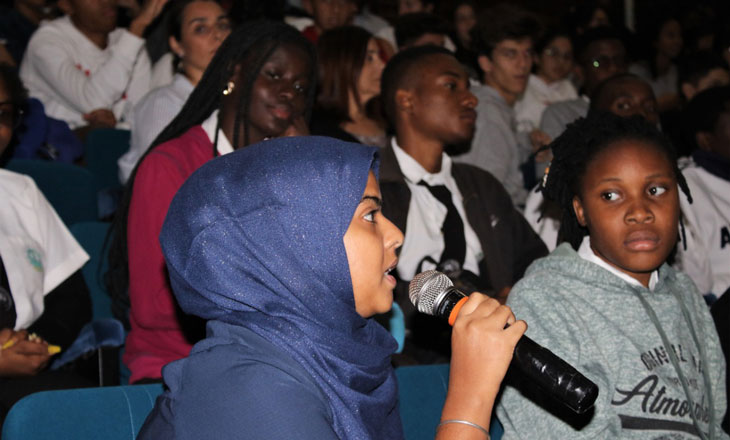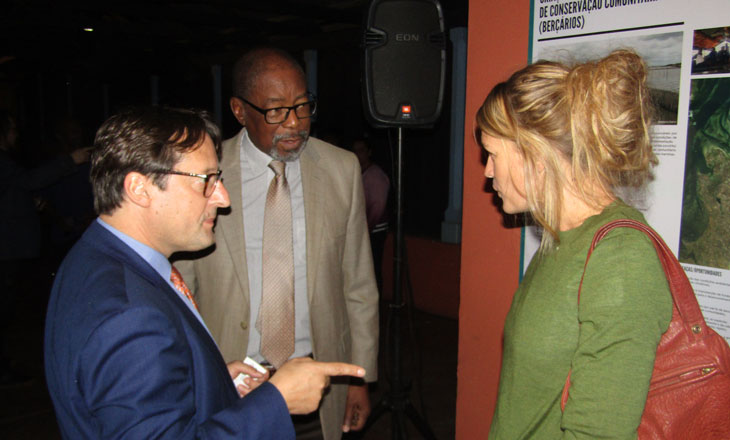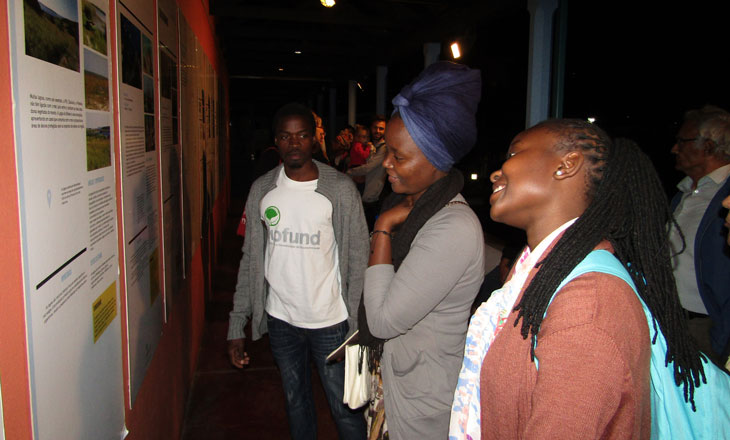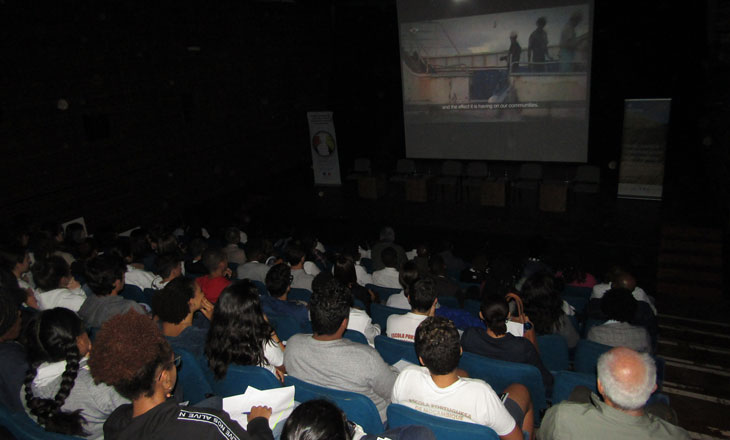The French Embassy in Mozambique and BIOFUND co-organized, at the Franco Mozambican Cultural Center, between 21st and 24th of September 2019, the first edition of the Terra Nossa event, around the motto “Crossed look between human beings and the ocean.”
Published at 16/10/2019
First Edition of “Our Land” launched by the Embassy of France and Biofund
How can we think together about the future of our planet Earth and how to reconcile human activities and nature to build a more sustainable world – were the questions that guided the activities and the search for answers in order to strengthen the debate and reflection on the climate change action and environmental issues in Mozambique.
The first edition began with a beach clean-up journey coordinated by AMOJOF on September 21st, followed by an exhibition of panels and photographs on Threatened Biodiversity in Mozambique, which lasted until the 30th, inaugurated by the Ambassador of France, David Izzo, and BIOFUND´s Executive Director Luis Bernardo Honwana.
One of the central points of the event was the broadcasting of the Mother Ocean documentary, produced by Bitonga Divers Asscociation, followed by a round table taking into account the dilemma on “How to reconcile economic and human activities and the preservation of marine biodiversity in Mozambique”, moderated by Sean Nazeralli, BIOFUND’s Director of Innovative Financing. The debate was attended by Anabela Rodrigues, WWF Director, Miguel Gonçalves, Maputo Special Reserve Administrator, Felisberto Manuel, Pescamar Director and António Sacramento, Bitonga Divers / Ocean Revolution member.
According to Anabela Rodrigues, there was a study conducted in 2010, indicating that over 4.8 to 12 million tons of plastic were found under the sea worldwide. The same study pointed out that over 35% of turtles, 90% of 186 species of seabirds, 17% of a specific shark species, 18% of tuna and swordfish ingest microplastics.
The roundtable was attended by almost one hundred people, including representatives of government institutions, non-governmental organizations, civil society, teachers and students from the Francisco Manyanga, French and Portuguese schools.
In general, as a mitigation measure, the present public pointed as a solution an intervention of schools in the mobilization and support in reducing the use of plastic and the creation of movements between schools in the struggle to reach some preservation goals from the creation a culture of conservation and education about the country’s resources;
Another problem raised was the issue of illegal fishing, Anabela Rodrigues defended that the communities in many cases value the zones of sealing even in extreme times, as is the case of cyclones, finding alternative forms of subsidence. However, according to her, significant cases of illegal fishing with significant impact persist. Miguel Goncalves, on this subject, drew attention to the fact that artisanal fishers are not the only actors and that the impact of industrial fishermen on resource dynamics must also be analyzed.
In its turn, some of the audience asked the representative of Pescamar, a company that is a member of one of the largest fishing groups in the world, present in Mozambique, about the reasons that limit the use of TED (turtle exclusion device) to minimize the capture of sea turtles and beyond.
Felisberto Manuel argued that the approval of the TED legislation in Mozambique was made without certain previous studies and that some data indicate that the responsibility for the capture of sea turtles is related to trawl fishing. He stated that the institution he represents has already tried the use of this technology and was unsuccessful. According to him, Pescamar operates essentially in Sofala Bank, an area that considers that there is no significant risk of affecting protected species, a position partially countered by the Ponto do Ouro Partial Marine Reserve Administrator and WWF Director. But it emphasizes that, in general, the country needs to do more for the protection of the environment and that at Pescamar there is a concern to invest in boats that have less impact on the ecosystem.
In addition to the debate session, the event included film sessions with environmental content, educational games and guided tours. The event was attended by more than 3 hundred people.
The Embassy of France has the ambition to continue to organize an annual environmental event aiming to keep raising awareness on the importance of environmental protection for the sustainable economic development of Mozambique.
BIOFUND has as its third strategic pillar the promotion and consolidation of a favorable environment for conservation in Mozambique. In this context, this Foundation has been seeking to raise awareness among civil society about the importance of biodiversity, as well as to promote and facilitate discussions and information sharing.





